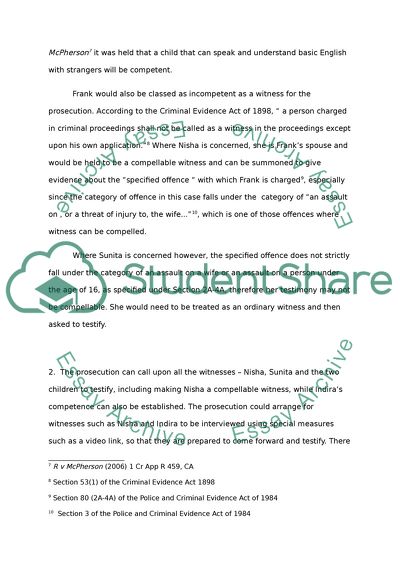Cite this document
(Law of Evidence Issues Case Study Example | Topics and Well Written Essays - 2000 words - 2, n.d.)
Law of Evidence Issues Case Study Example | Topics and Well Written Essays - 2000 words - 2. Retrieved from https://studentshare.org/law/1724351-law-of-evidence
Law of Evidence Issues Case Study Example | Topics and Well Written Essays - 2000 words - 2. Retrieved from https://studentshare.org/law/1724351-law-of-evidence
(Law of Evidence Issues Case Study Example | Topics and Well Written Essays - 2000 Words - 2)
Law of Evidence Issues Case Study Example | Topics and Well Written Essays - 2000 Words - 2. https://studentshare.org/law/1724351-law-of-evidence.
Law of Evidence Issues Case Study Example | Topics and Well Written Essays - 2000 Words - 2. https://studentshare.org/law/1724351-law-of-evidence.
“Law of Evidence Issues Case Study Example | Topics and Well Written Essays - 2000 Words - 2”. https://studentshare.org/law/1724351-law-of-evidence.


